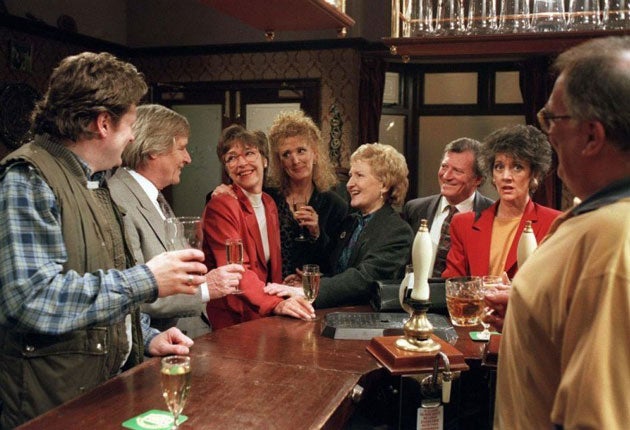David Lister: Soaps may not talk a good game, but the emotion's a real winner
The Week in Arts

I've said before how strange it is that no one in EastEnders ever watches EastEnders. That, for me, stops it from being a totally realistic slice of life. Normally, of course, when people talk of realism and the soaps they are talking about representation of ethnic minorities, the issue that did for the producer of Midsomer Murders.
This week the producer of EastEnders did something rare for a soap guru. He admitted in an interview with the Radio Times that the programme wasn't realistic. John Yorke, the BBC's controller of drama production, said: "EastEnders' East End and its version of working class life are very stylised. It's not realistic in that respect, but you look for emotional truthfulness."
He added that the programme "may be significantly white compared with the real East End", but it was "considerably more multicultural than it was even five years ago and is easily the most multicultural show on telly now".
The Radio Times also interviewed Coronation Street's executive producer Kieran Roberts, who said his programme presented "a warm and cosy version of the world" but added that "it's a community that's sufficiently real and sufficiently recognisable that people are drawn to it." The ethnic mix, he said, was "about right".
Isn't it odd how any discussion of realism in the soaps focuses always and exclusively on the representation of ethnic minorities? In fact there's hardly any realism. It's not just that the characters in our two leading soaps never watch EastEnders or Coronation Street, they hardly watch TV at all. They certainly hardly ever talk about it, nor come to that, do they talk about films or gigs. Do they never get past the pub at the end of the street?
And why are nearly all the characters in soap operas so utterly uninterested in sport? From Coronation Street's earliest days there has seldom been a heated discussion in The Rover's Return about football. And it's set in Manchester for goodness sake.
In fact, soap operas are not remotely realistic about the areas in which they are set or the people living there. That has only become an issue in recent years, of course, with debate about representation of ethnic minorities. But that to a degree misses the point. It would be wrong not to have ethnic minorities, not so much because it would not reflect the latest census of real-life Walford or Weatherfield, but because all programmes should be moving towards colour-blind casting, with the consequent benefits for actors and audiences, not least young ethnic minority audiences in search of a feeling of belonging.
But that's different from striving for box-ticking realism. For once a BBC executive has got it right. In drama, what counts is emotional truthfulness. It certainly helps if the backdrop to this is recognisable, but in recent years there has been a defensiveness from television executives that has blurred the boundaries between drama and documentary.
We need to recognise and relate to characters, situations, emotion, love and loss. It really doesn't matter too much if there's a lack of football scarves.
Summer exhibition is a cat-free zone
Something momentous is happening in the art world. I learned this when I went to a very enjoyable lunch this week with the hanging committee of the Summer Exhibition at the Royal Academy. They told me that the print room, for the first time in living memory, was devoid of cats.
The artists of middle England, whose work will adorn the walls of the exhibition when it opens next month, have fallen out of love with their pets. This is a shock to the system. I anticipate a repeat of the scenes that greeted the Sensation exhibition some years ago, when protesters massed outside the doors of the Royal Academy.
Cat lovers of Britain will be planning the demo already. Only with hindsight can we now realise that the long revolution in British art since the Second World War has led inexorably to the demise of the mog.
d.lister@independent.co.uk

Join our commenting forum
Join thought-provoking conversations, follow other Independent readers and see their replies